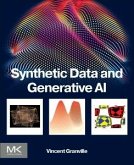Synthetic biology represents a multidisciplinary field that combines principles from biology, engineering, and computer science to design and construct new biological parts, devices, and systems. This innovative approach allows for the reprogramming of living organisms to perform specific functions, thereby paving the way for advancements in various sectors, including healthcare, agriculture, and environmental sustainability. The integration of artificial intelligence (AI) into synthetic biology enhances these capabilities by providing sophisticated methodologies for data analysis, predictive modeling, and automation, making it possible to tackle complex biological problems with unprecedented efficiency. Machine learning applications in genetic engineering exemplify the transformative impact of AI on synthetic biology. By analyzing extensive genomic data, machine learning algorithms can identify patterns and predict genetic modifications that may enhance desired traits in organisms. These tools support researchers in designing more effective gene editing strategies, including optimizing the use of CRISPR technologies. The ability to predict outcomes of genetic alterations not only accelerates the research process but also reduces the risk of unintended consequences, thereby improving the safety and efficacy of genetic interventions. AI-driven drug discovery and development is another critical area where synthetic biology is making significant strides. Traditional methods of drug discovery are often time-consuming and costly. However, the adoption of AI techniques can streamline this process by utilizing large datasets to identify potential drug candidates, predict their interactions, and assess their efficacy. Computational models enable researchers to simulate biological responses, allowing for faster testing of hypotheses and reducing the need for extensive laboratory trials. This integration of AI not only shortens development timelines but also enhances the precision of drug design, leading to more targeted therapies. Incorporating AI into metabolic engineering and optimization is revolutionizing the production of biofuels, pharmaceuticals, and other valuable compounds. By leveraging computational modeling, scientists can design and optimize metabolic pathways that maximize yield while minimizing waste. AI algorithms can analyze metabolic flux data and predict the effects of genetic modifications on overall productivity, allowing for the fine-tuning of biosynthetic processes. This capability is essential for developing sustainable production methods that meet the growing demands for various bioproducts in an environmentally friendly manner. The ethical implications of integrating AI with synthetic biology cannot be overlooked. As researchers push the boundaries of what is biologically possible, they must navigate complex ethical landscapes that involve considerations of biosafety, biosecurity, and the potential for unintended ecological consequences. Establishing frameworks for responsible research practices is imperative to ensure that innovations do not compromise public health or the environment. By fostering discussions around ethical standards and governance, the synthetic biology community can harness the power of AI while safeguarding against potential risks, ensuring that advancements benefit society at large.
Hinweis: Dieser Artikel kann nur an eine deutsche Lieferadresse ausgeliefert werden.
Hinweis: Dieser Artikel kann nur an eine deutsche Lieferadresse ausgeliefert werden.








